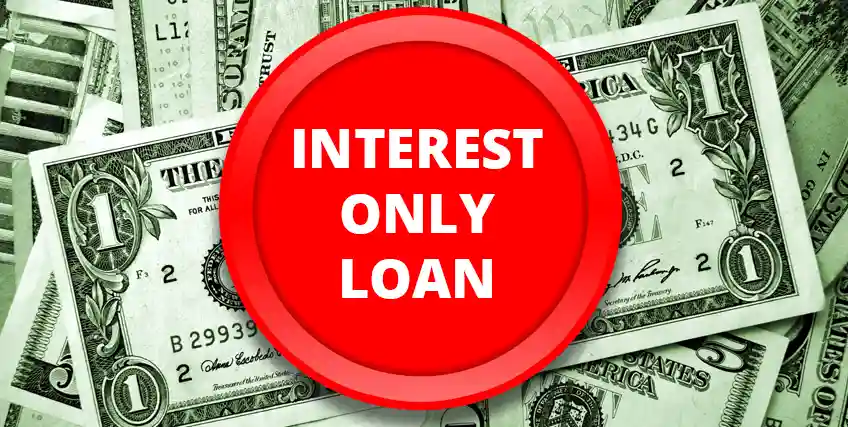Understanding Commercial Loans
March 02, 2025 | Last Updated on: March 02, 2025

The term "commercial loan can mean many different things depending on who you talk to. Many people use the term to describe a commercial real estate loan, while others use it just to talk about business loans in general.
The most basic definition of commercial loan is a financial arrangement between a business and a lender to fund capital expenditures, operating costs, or other financial needs that the business may not be able to pay for on their own.
Commercial loans generally come with an associated interest rate and origination fees that must be paid by the borrower and sometimes require a down payment.
Many small business owners will find themselves in the position of needing funds without a clear way to get them in a timely fashion. Some business owners will take on an investor, but that means giving up control. Others will borrow money from friends and family, but not everyone is that lucky. Commercial loans are a tried-and-true way for business owners to get the funding they need to grow and sustain business activities.
Unfortunately, getting a commercial loan can be a complicated, intimidating process. It would seem as simple as submitting an application, right? Well, it turns out there s quite a bit more to it than that. Getting a commercial loan is a complex process that begins with a conversation with a lender and (hopefully) ends in a successful loan being issued.
Banks and other lenders generally have slightly different commercial lending policies, so it s important to have at least a passing understanding of the types of loans, why your credit history matters, and the different financing options that may be available to you. Like many types of personal loans, commercial loans will sometimes require collateral to help protect the lender if the borrower stops making payments.
Though loans are typically used to fund things like buying property or equipment, they are sometimes used to bridge gaps in operational expenses like payroll or buying raw goods. There are also several types of financial products that can be used for similar purposes as a commercial loan.
A few of the most popular financial products are:
- Business real estate loans used to purchase, refinance, or construct office buildings, apartments, retail buildings, and other commercial property or structures. Collateral is usually considered to be the property that is being purchased or built
- Lines of credit function like credit cards, in that they offer immediate funds and can be reused once paid off. When approved for a line of credit, the business owner may request funds from their financial institution and generally receives their money quickly. Monthly payments do not begin until money is actually borrowed
- Equipment loans, just like they sound, are used to buy things like computers, heavy equipment, and vehicles
The federal government also works with lenders to offer loans through the Small Business Administration (SBA). The SBA has loan programs that are tailored for specific business types, industries, and locations that offer special rates and terms to help promote economic activity in a certain way. The administration has restrictions on who can obtain a loan and on how the loan funds can be used, but they generally function like a normal commercial loan otherwise. It s important to note that SBA commercial loans are not issued by the government. They are backed by the government, which makes them less risky for a lender to take on.
How to Get a Commercial Loan
Determine Why You Need a Loan
It may sound obvious, but figuring out why you want a loan and what you ll be using it for will save you many headaches as the process moves along. Why do you need the loan? Are you hoping to grow your business by building a new facility or bringing on new employees? Are you looking to bridge the gap over an unexpected dip in revenues? Whatever the reason, your lender will want to know the why and may base part of their approval decision on your answer. If your need for a commercial loan is clear and you can back it up with facts, you ll not only have a much better chance of actually getting the loan, you ll have a much better chance of getting better terms and rates on the loan. Lenders want to reduce their risk and give money to business owners who will put those funds to good use and eventually pay it all back.
Gather Documentation
Before you even step foot into a bank, you ll need to have all of your financial ducks in a row. This means that everything from tax documents to social security cards will need to be gathered and organized for the application process. Commercial loans are a bit different than personal loans because they require credit and financial information on both the business and the business owner, and lenders want to see that both are heading in the right direction. Some of the documentation required may include:
- Business income statements and cash flow records
- Business and personal tax return documents
- Business and personal credit score documentation
- Business plans
The lender may also request additional information on how the loan funds will be used. If commercial loans are used to construct new buildings or buy property, the borrower may be required to provide documentation on how those properties will be used and how they will earn money.
Complete the Application
It sounds simple, but many borrowers get tripped up on the application process. Even if you have all of your documentation in order, it s important to be very clear and very accurate on your application, as one error can cause the whole process to come to a screeching halt. If you have more than one person or entity applying for the loan, they will need to fill out their portion of the application as a co-borrower just as accurately.
Loan Decisions
As much as it may seem like banks and other lenders feed your application into a computer and get an immediate answer, there s actually quite a bit of human interaction with the lending process, especially when it comes to large loans. In some cases, the decision to reject a loan application has nothing to do with the business itself or its ability to repay the loan. The lender s decision may come down to its internal lending policies that dictate how much money can be issued at one time to a particular type of business. If the loan decision comes back against your business due to reasons that you can control, there are a few steps you can take to get back on track:
- Sit down with your lender to determine why and how the negative decision was reached. Sometimes, it s just a clerical issue, but many times there s something about the business that gives the lender s loan committee pause
- Work to improve or correct the areas of your business that were identified as being deficient. This won t be an overnight process, but will give you an opportunity to take a step back and make your business better from the ground up
- Talk with other lenders to assess all of your options. One lender s decision does not mean that all lenders will view your application the same way
- Reapply once you ve taken steps to fix any areas identified by the lender as needing work. Eventually, you will be able to approach the lender again with proof of better annual revenues and an improved level of creditworthiness
Where to Get Commercial Loans
Banks and credit unions are an obvious starting point, but they re far from the only place to get a commercial loan. Traditional institutions like these have an advantage, because they are typically local and have an established reputation in the community. They also offer a personal touch, so that if anything goes wrong during the process or if the applicant has questions, they can go direct to a person and ask away.
Traditional lenders are bound by very strict rules on who they can loan to and how the loan funds are used. These measures were put in place to protect the integrity of the financial system and keep banks afloat, but they can make applying for a loan with a traditional institution much more difficult than with an alternative lender.
Bank loans have very structured repayment terms and may have restrictions on refinancing, early payoffs, and loan-to-value ratios. Online and alternative lenders operate in much the same way that banks and credit unions do, with the big exception being that they don t always take deposits and use those funds in their lending activities.
This difference means that there are fewer restrictions placed on alternative lenders by the federal government, which may lead to an easier path to getting a commercial loan. Online and alternative lenders may also offer more favorable loan terms for short-term loans, and may be able to issue larger loan amounts. Fewer regulations does not mean no regulations, so be sure to check your lender s terms and restrictions before signing on the dotted line.
FAQ
Can commercial loans be used to purchase land?
Commercial loan lenders can help small business owners apply for and get approved for the right business real estate loan.
How can my small business find a financing option that offers affordable commercial loan rates?
Financing costs are calculated based on the creditworthiness of the borrower, loan amount, and several other factors. Government backed loan programs, like the SBA 7(a) loan, typically offer lower interest rates and down payments than traditional bank loans or working capital financing arrangements, like an MCA.
What are the commercial loan eligibility requirements for startup entrepreneurs?
It can be challenging for startup business owners to get approved for certain business loans due to their lack of business credit history. However, some online lenders will allow borrowers to provide their personal credit score, tax returns, and residential mortgage payment history to improve their chances of qualifying for business financing.
My small business loan application was denied. Is there a waiting period before applying for another type of financing?
No, there is no formal waiting period to reapply for business financing. A commercial lending expert can provide suggestions on improving the odds of approval.
Can I use an equipment loan to purchase a new Point of Sale (POS) system?
Yes, POS systems are considered business equipment.
Frequent searches leading to this page
equipment financing, business loan interest rates, business loan rates, commercial loan lenders, commercial loan rates





